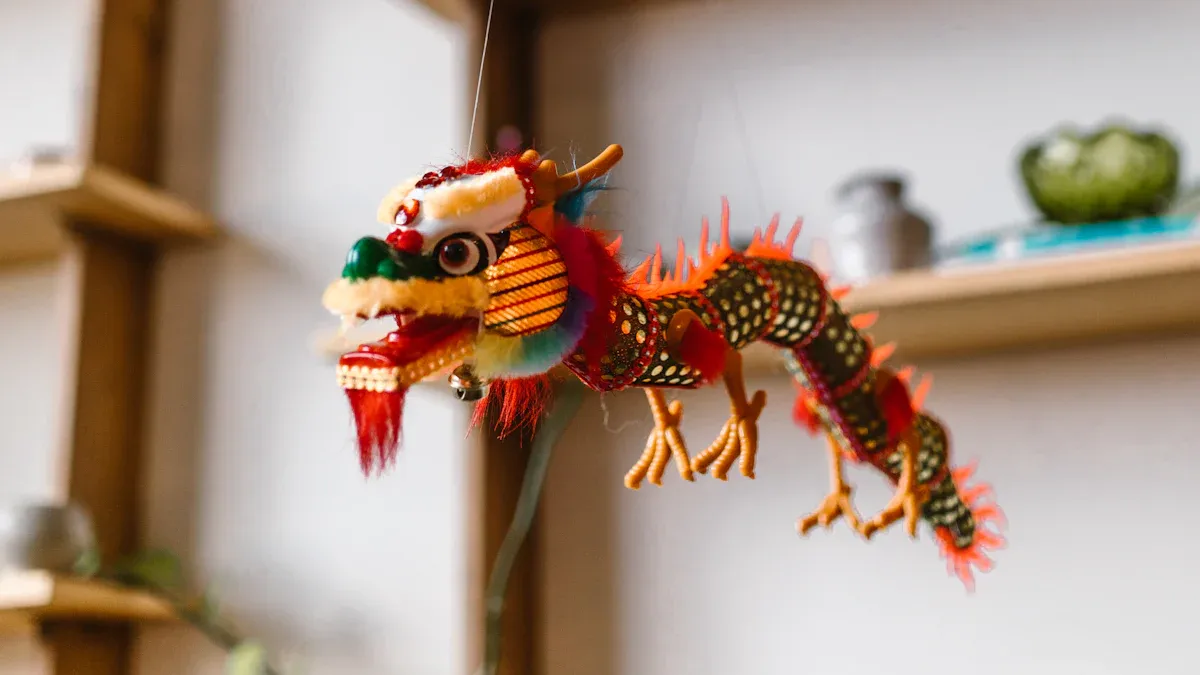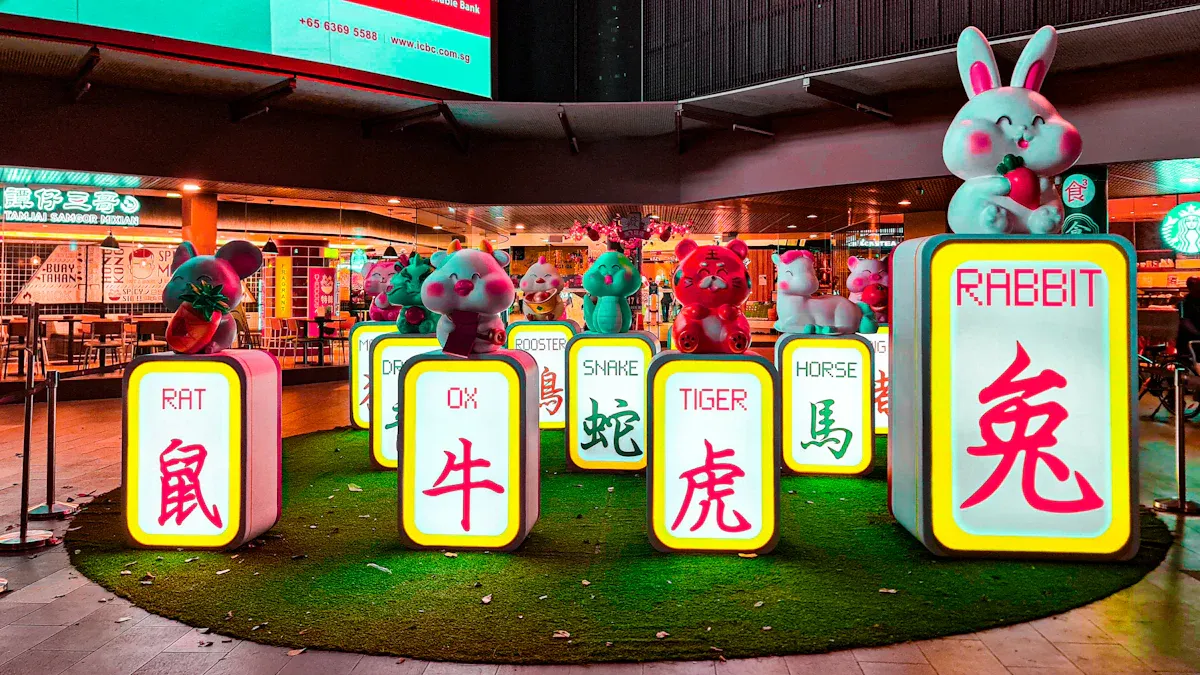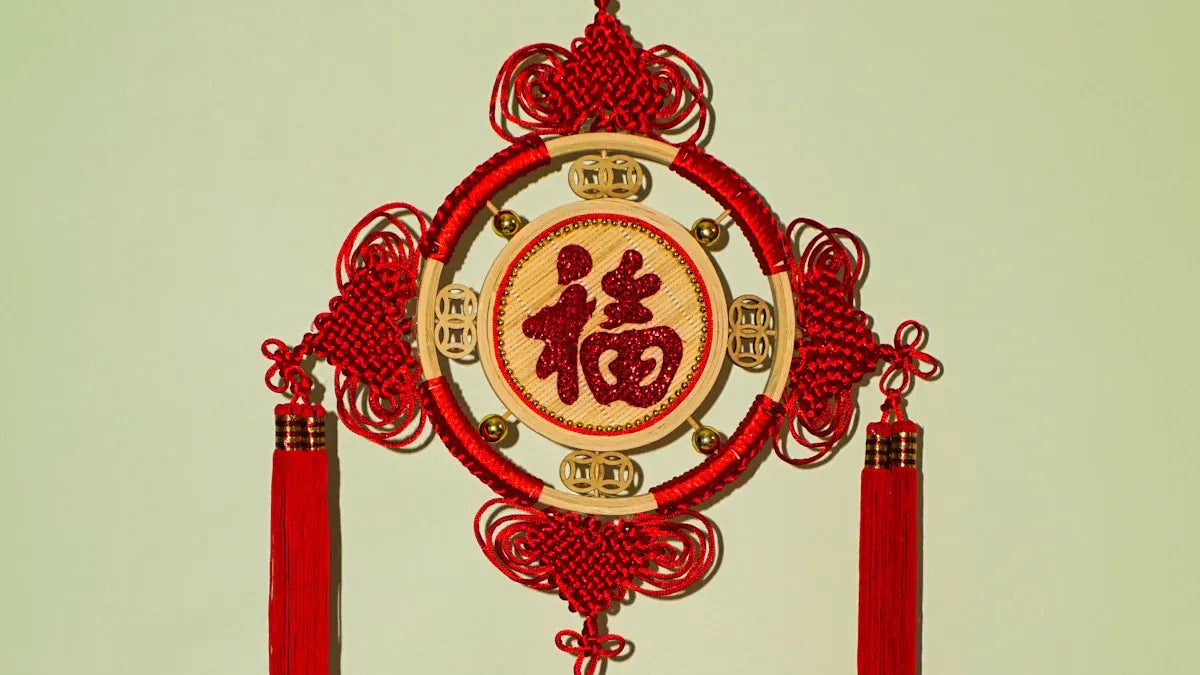Scientific proof for Chinese astrology is not clear. Scientists have used math and long studies to find links between birth year and personality.
Other studies find almost no link.
Critics say there are problems with how studies are done, who is picked, and cultural issues.
The chinese zodiac is very important in chinese culture. The famous Yuanmingyuan Zodiacs became signs of pride after their auction in 2000 started a big debate. Many people use astrology for answers and to feel close to tradition, beliefs, and new spiritual ideas.
Key Takeaways
Chinese astrology has twelve animal signs and five elements. It uses these to explain personality and life events. The system is a big part of Chinese culture. It helps people feel close to tradition and family. Science does not find strong proof for Chinese astrology. It cannot really predict personality or the future. People believe in the zodiac for many reasons. Culture, family habits, and wanting comfort all play a part. People notice when zodiac traits match them. They often ignore when traits do not fit. This is called confirmation bias. Chinese astrology affects real choices in life. It can guide business and family events, mostly in China. The system is not the same as Western astrology. It looks at birth years and animal signs. Western astrology uses birth dates and star signs. Many people enjoy Chinese astrology for its culture. It brings social connection and spiritual comfort. This is true even if there is no scientific proof.
Chinese Astrology Overview

Chinese astrology started a very long time ago. It is older than many other ancient systems. Long ago, Chinese astronomers watched the sky. They looked at the Sun and Moon. They used what they saw to make a system. This system connects the sky to life on Earth. Later, people called this the chinese zodiac.
Core Principles
Zodiac Signs
The chinese zodiac has twelve animal signs. Each year matches one animal. The animals are: rat, buffalo, tiger, rabbit, dragon, snake, horse, goat, monkey, rooster, dog, and boar. These animals repeat every twelve years. Old stories, like the Jade Emperor’s Great Race, tell how the animals got their order. You can see the chinese zodiac on pottery, bronzes, and tomb carvings. These things show the animal signs were important in chinese culture.
Each animal sign has special traits.
People think your birth year affects your personality and future.
The chinese zodiac helps with fortune-telling, picking lucky days, and finding good matches.
Old books, like the Book of Rites and Records of the Grand Historian, talk about the chinese zodiac and its use in rituals. The system became strong during the Han dynasty.
Five Elements
The five elements are also important in chinese astrology. The elements are wood, fire, earth, metal, and water. Each element goes with certain years, animals, and planets. The five elements give more meaning to the animal signs. They help explain luck, health, and relationships. The five elements also connect to nature and balance in life.
Note: The five elements and the twelve animal signs work together. This makes a system that guides many choices in chinese life.
How It Works
Chinese astrology uses animal signs and five elements to predict things. Each person has a birth year animal and an element. These two parts shape personality, strengths, and problems. The chinese zodiac helps people pick lucky days, plan events, and find good partners. Western astrology uses months and star signs, but chinese astrology uses years and animal cycles. The system also connects to the lunar calendar and farming seasons. The chinese zodiac is important for Lunar New Year and family traditions.
Chinese astrology spread to places like Japan, Korea, and Vietnam. It became popular in the West in the 1900s. Today, many people still use the chinese zodiac for advice and to remember their culture.
Accuracy of Chinese Astrology
Main Findings
A lot of people wonder if the chinese zodiac can really tell the future or show personality. Scientists have checked how well chinese astrology works for a long time. Some people think the animal signs match real traits. They believe the zodiac is correct. But others do not agree. They say there is almost no link between birth year and how someone acts.
Scientists have tried different ways to test the chinese zodiac. Some studies ask people about their own traits. Then, they compare these answers to their zodiac sign. Other studies look at big groups. They check if people born in the same year act the same. Most results are mixed. A few studies find small patterns. But many do not find strong proof.
Many people think the chinese zodiac is right because of belief and tradition. When people read about their sign, they notice what fits their life. This is called confirmation bias. It means people remember what matches and forget what does not. Family and culture are also important. In many chinese families, the zodiac is part of daily life. People use it to pick wedding dates, name babies, or make big choices. These strong traditions can make the zodiac seem more true than it is.
Note: How accurate chinese astrology feels often depends on what people believe, family habits, and pride in their culture. These things can change how people see the chinese zodiac in their lives.
Scientific Perspective
Scientists have tried to find real proof for chinese astrology. They want to know if the chinese zodiac can really predict health, personality, or life events. One study in Cureus checked if the zodiac could predict COVID-19 cases and deaths. The scientists used real numbers and careful study. They found no link between zodiac signs and who got sick or died. This shows the chinese zodiac does not work for health predictions.
Another study looked at how people use chinese astrology on social media. It found that many people use the zodiac to show who they are and connect with others. The study did not find real proof for or against chinese astrology. Instead, it showed the zodiac is important for social and cultural reasons.
Most science studies do not find strong proof for chinese astrology. Scientists say belief, tradition, and confirmation bias are big reasons people trust the zodiac. People may think it is right because they want to believe or because it is part of their culture.
Study Type |
Focus Area |
Result on Accuracy |
|---|---|---|
Personality Tests |
Zodiac and personality |
Mixed, mostly weak links |
Health Predictions |
COVID-19 and zodiac signs |
No link found |
Social Research |
Identity and tradition |
Strong cultural impact |
Astrology, including the chinese zodiac, is still popular. Many people like reading about their sign and sharing it with friends. But science does not give strong support for the accuracy of chinese astrology. Most studies say belief and tradition shape how people see the chinese zodiac.
Chinese Zodiac and Personality
Personality Traits
The chinese zodiac connects your birth year to an animal sign. People think these signs shape how you act. For example, if you are born in the Year of the Dragon, you might seem brave. If you are born in the Year of the Rabbit, you may be gentle and nice. Stories and old customs help explain why people act certain ways.
Each animal sign has its own traits. The chinese zodiac says these traits help people know themselves and others. Many families talk about these traits at holidays or family events. They use the chinese zodiac to guess how someone might act.
Here is a table that lists common traits for each animal sign:
Animal Sign |
Common Traits |
|---|---|
Rat |
Clever, quick |
Ox |
Strong, steady |
Tiger |
Brave, energetic |
Rabbit |
Gentle, friendly |
Dragon |
Confident, bold |
Snake |
Wise, calm |
Horse |
Lively, free-spirited |
Goat |
Kind, creative |
Monkey |
Smart, playful |
Rooster |
Honest, hardworking |
Dog |
Loyal, fair |
Pig |
Generous, easygoing |
People use these traits to learn about themselves. Some feel proud of their animal sign. Others use the chinese zodiac to find friends or partners who match them.
Note: The chinese zodiac does not fit everyone. Some people see traits that match, but not all. This can change how true the system seems.
Predictive Claims
The chinese zodiac also tries to tell the future. People use it to pick lucky days or plan big events. The animal signs and five elements work together to give advice. The chinese zodiac says some years are luckier for some signs.
Many people check their zodiac at the start of the year. They want to know if they will have good luck or health. The chinese zodiac gives tips on what to do or avoid. Some believe wearing certain colors or charms helps their luck.
Scientists have checked if these predictions are true. Most studies find little proof the chinese zodiac can predict real things. How true it feels depends on what people believe. Some people remember when predictions come true and forget when they do not. This makes the chinese zodiac seem more right than it is.
The chinese zodiac is still popular in chinese culture. People like reading their forecasts and sharing them. The system brings families together and keeps old traditions going.
Evidence and Studies

Statistical Research
Researchers have spent a long time looking at the chinese zodiac. They want to see if it changes real choices people make. They use big groups of numbers and hard math to find patterns. The chinese zodiac shows up in studies about business, risk, and how people act in the chinese community.
One study checked leaders of chinese public companies during their zodiac year. The researchers used special math models to see if the zodiac year changed what leaders did. They found leaders acted more careful and kept more cash in their zodiac year. This did not match any real rise in risk. The change only lasted for the zodiac year and then stopped. The extra cash did not help the company and even hurt shareholders. The study showed that believing in zodiac luck can change big money choices.
Another study looked at top managers in chinese companies from 2006 to 2019. These managers were more careful and took fewer risks in their zodiac year. This was stronger in private companies and some places. The change only happened in the zodiac year and made the market react badly. The study found that keeping more cash was one way the zodiac changed choices.
Some experiments showed people in their zodiac year feared risk more. The study split risk-taking from beliefs. Both fear of risk and negative thinking went up in the zodiac year. Two case studies showed how these beliefs changed business choices. The research showed the chinese zodiac can change how people act with money.
Another study checked chinese companies from 2008 to 2021. It found CEOs who believed in the zodiac took fewer risks. This stopped too much spending but made not spending enough worse. The effect was stronger in companies with less control and weaker rules. The study proved chinese beliefs can change how leaders decide things.
A big study called "Zodiac year fate eased by CSR: Fact or fiction?" looked at 24,418 cases from chinese companies between 2010 and 2020. The study found a clear link between chairpersons' zodiac years and what they did for social responsibility. The effect showed up during and before the zodiac year. The study did not test if the zodiac can tell the future, but it gave strong number proof that zodiac beliefs change real business actions in china.
Psychological Factors
Confirmation Bias
Many people think the chinese zodiac tells their personality or future. Psychology explains why this belief feels so strong. Lillqvist and Lindeman (1998) showed that believing in astrology, like the chinese zodiac, helps people feel better and deal with hard times. Wanting comfort and to know yourself makes the zodiac seem more true than it is.
Lopez and others (2021) found that seeing astrology online, plus the Barnum effect, makes people believe the chinese zodiac more. The Barnum effect means people think general statements are true for them. This, plus stress, makes people trust the zodiac more, especially when lots of people share it online.
A study with chinese teens found the Barnum effect links using personality tests, like astrology, to feeling more sure of who you are and better mental health. This research showed that wanting to feel special or understood helps explain why many people believe the chinese zodiac.
Cultural Influence
Culture is a big reason people believe in the chinese zodiac. In chinese families, the zodiac is part of daily life. People use it to pick wedding days, name babies, and make big choices. The chinese zodiac connects people to their past and their group. This strong culture makes the zodiac feel true, even if science does not agree.
Social media and group habits also spread belief in the zodiac. When people see family and friends talk about their sign, they feel closer and proud of their culture. This shared belief keeps the chinese zodiac popular today.
Note: Both what people need inside and their culture help keep belief in the chinese zodiac strong. Even without strong science proof, these things make the zodiac matter to many people.
Evaluation and Critique
Strengths
Chinese astrology has some strong points that help explain why people still like it. Many people feel safe because the system is easy to follow. The twelve animal signs and five elements make it simple to think about personality and life events. Families use the chinese zodiac to help with big choices, like picking wedding dates or naming babies. This tradition helps people feel close to their culture and history.
The chinese zodiac also helps people feel together. During holidays like Lunar New Year, families talk about their animal signs and tell stories. This makes people feel like they belong. People like reading about their signs and sharing what they find with friends. The system’s symbols, like the dragon or rabbit, show up in art, jewelry, and parties. These symbols make daily life more special and beautiful.
Many people use chinese astrology to think about themselves. When people look at the traits of their animal sign, they might learn more about who they are. The system helps people think in a good way and hope for good things. Some people believe wearing charms or using lucky colors can help them or keep them safe.
Note: The good things about chinese astrology mostly come from its place in culture, tradition, and what it means to people, not from science.
Weaknesses
Even though chinese astrology is important in culture, it has some weak points when scientists study it. Researchers have checked if the zodiac’s predictions match real personality or life events. A big study in China asked 174,000 people about their personalities. The survey used the Big Five personality traits, which is common in psychology. The results showed no real link between chinese zodiac signs and personality. Only a very small effect was found for people born in summer, who were a little more outgoing. This effect was so tiny that it did not matter in real life.
Scientists say the biggest weakness of chinese astrology is that it does not have strong proof. The system’s ideas about personality or fate do not work when tested closely. Many people believe in the zodiac because of family, tradition, or wanting to find meaning. But these reasons do not make the system correct.
A table below shows the main weak points:
Weakness |
Description |
|---|---|
Lack of scientific proof |
Studies find no strong link to personality traits |
Confirmation bias |
People notice matches and ignore mismatches |
Cultural influence |
Belief often comes from tradition, not evidence |
Scientists agree that chinese astrology’s predictions are not trustworthy. People like the system because of culture and belief, not because it is proven true.
Comparison with Western Astrology
Method Differences
Chinese astrology and Western astrology both try to explain people. They also try to guess what might happen in life. But they use different ways and ideas. Chinese astrology has twelve animal signs. Each animal goes with a birth year. There are five elements too: wood, fire, earth, metal, and water. These elements give more meaning to the animals. The chinese zodiac repeats every twelve years. People think their birth year changes their luck and personality.
Western astrology uses twelve star signs. These are also called zodiac signs. Each sign matches a time of year, not a whole year. Western astrology looks at where the sun, moon, and planets are when someone is born. It uses a birth chart to show how these things might change a person’s life. Some Western signs are Aries, Taurus, and Gemini.
Feature |
Chinese Astrology |
Western Astrology |
|---|---|---|
Main Signs |
12 animals |
12 star signs |
Cycle |
12-year cycle |
12-month cycle |
Elements |
Wood, Fire, Earth, Metal, Water |
Fire, Earth, Air, Water |
Focus |
Birth year |
Birth date and time |
Chart Used |
Zodiac chart |
Birth chart (natal chart) |
Chinese astrology is often used with family and culture. People use it to pick wedding days or name babies. It is also part of holidays. Western astrology is more about one person. It gives horoscopes for each day, week, or month.
Note: Both systems use special symbols and stories. But their ways and what they focus on are not the same.
Scientific Scrutiny
Scientists have checked both chinese astrology and Western astrology. They want to see if these systems can really tell about people or events. Most studies do not find strong proof for either one. Researchers test if people with the same chinese zodiac sign act the same. They also check if Western star signs match real traits. The results are weak or mixed.
Many scientists say people believe in astrology because of tradition and culture. People also want to find meaning in life. In chinese astrology, family and pride in culture are important. In Western astrology, people look for advice or comfort. Both systems use general statements that fit many people. This makes it easy for someone to think the description is about them.
Some studies compare chinese astrology and Western astrology. These studies find both systems have the same problems. Neither one can guess personality or the future better than chance. Scientists agree that confirmation bias and culture change how people see astrology.
Scientists say: "Astrology, whether chinese or Western, does not have strong science proof. People like these systems for tradition, comfort, and fun.
Cultural and Spiritual Context
Tradition and Identity
Chinese astrology helps people understand who they are. It also helps them see where they fit in their family and community. The zodiac signs and five elements bring families together. People use these symbols to make big choices and celebrate special days.
The China Family Panel Studies (CFPS) found zodiac beliefs change how families act. People in their zodiac year often give more to charity. They also spend less on healthcare. They think giving money can stop bad luck.
The Chinese zodiac is important for finding marriage partners. This is especially true during Lunar New Year. Families use zodiac signs to pick good matches. Some years, like the Year of the Dragon, are seen as lucky. Many parents want babies born in these years. This can make more babies born in those years.
Astrology shapes how people celebrate, pick jobs, and choose friends. People sometimes pick jobs or partners based on their zodiac sign. The zodiac also changes how people see themselves and others.
Studies show superstition about the zodiac year makes people careful with money. They may take fewer risks or worry more about the future. This shows tradition and identity affect real choices.
Researchers have looked for links between zodiac signs and personality. Some studies find small links, like Dragons being leaders or Monkeys being creative. Other studies do not find much proof. Critics say culture and confirmation bias can change results. Still, the zodiac is a strong symbol of who people are and their traditions.
The Chinese zodiac helps people feel close to their history and each other. It shapes how they act, make choices, and celebrate special times.
Modern Spiritual Practices
Today, many people mix old beliefs with modern life. Spiritual practices from Chinese astrology are popular, especially with young people. These practices help people find meaning, balance, and peace.
KarmaBless is one example of this trend. Their Red String Bracelets use old symbols like the Five Blessings, Pixiu Feng Shui, and lucky clovers. Each bracelet is made with natural things and special charms. People wear them for good luck, safety, and good energy. The bracelets remind people of their goals and dreams every day.
Red String Bracelets mix old Chinese beliefs with today’s style. They are easy to wear and keep old meanings alive.
The bracelets use the five elements—wood, fire, earth, metal, and water—to help people feel balanced.
Many people pick these bracelets because they look nice and feel calming. The charms and colors remind people of their hopes.
Surveys, like those from Pew Research Center, show belief in astrology is still strong. People use astrology to talk with others and make friends. These surveys do not only look at Chinese astrology, but they show people still like spiritual symbols.
Things like Red String Bracelets show how old ideas can help people today. They help people stay close to tradition while living in a busy world.
Chinese astrology is important to many people. But science does not show strong proof for its predictions. Many people feel comfort from tradition and belief. Some use things like Red String Bracelets from KarmaBless to help themselves. These bracelets mix old symbols with new fashion.
Thinking carefully lets people honor tradition and make smart choices. People can respect both science and culture if they keep an open mind.
FAQ
What is Chinese astrology?
Chinese astrology is very old. It uses twelve animal signs and five elements. People use it to explain personality, luck, and life events. Many use it for advice and to feel close to tradition.
How accurate is Chinese astrology?
Most science studies do not find it very accurate. Some people think it works because of family or their own experience. But there is no strong proof for its predictions.
What are the twelve animal signs?
The twelve animal signs are rat, ox, tiger, rabbit, dragon, snake, horse, goat, monkey, rooster, dog, and pig. Each sign goes with a birth year. Every sign has special traits in Chinese astrology.
Does science support Chinese astrology?
Science has not found strong proof for Chinese astrology. Researchers have tested it many times. Most results show little or no link between zodiac signs and personality or the future.
Why do people still believe in the Chinese zodiac?
Many people believe in the Chinese zodiac because of culture and family. The system gives comfort and helps people feel like they belong. This is true even if science does not support it.
Can Chinese astrology predict the future?
Chinese astrology gives advice and makes predictions. But science does not support its power to predict real events. People may remember when it is right and forget when it is wrong.
How does Chinese astrology differ from Western astrology?
Chinese astrology uses birth years, twelve animal signs, and five elements. Western astrology uses birth dates, star signs, and planets. Both systems use different ways and symbols.
Is there any empirical evidence for the Chinese zodiac’s claims?
Researchers have looked for strong proof. Most studies do not find big links between the Chinese zodiac and personality or life. Belief usually comes from tradition, not science.










